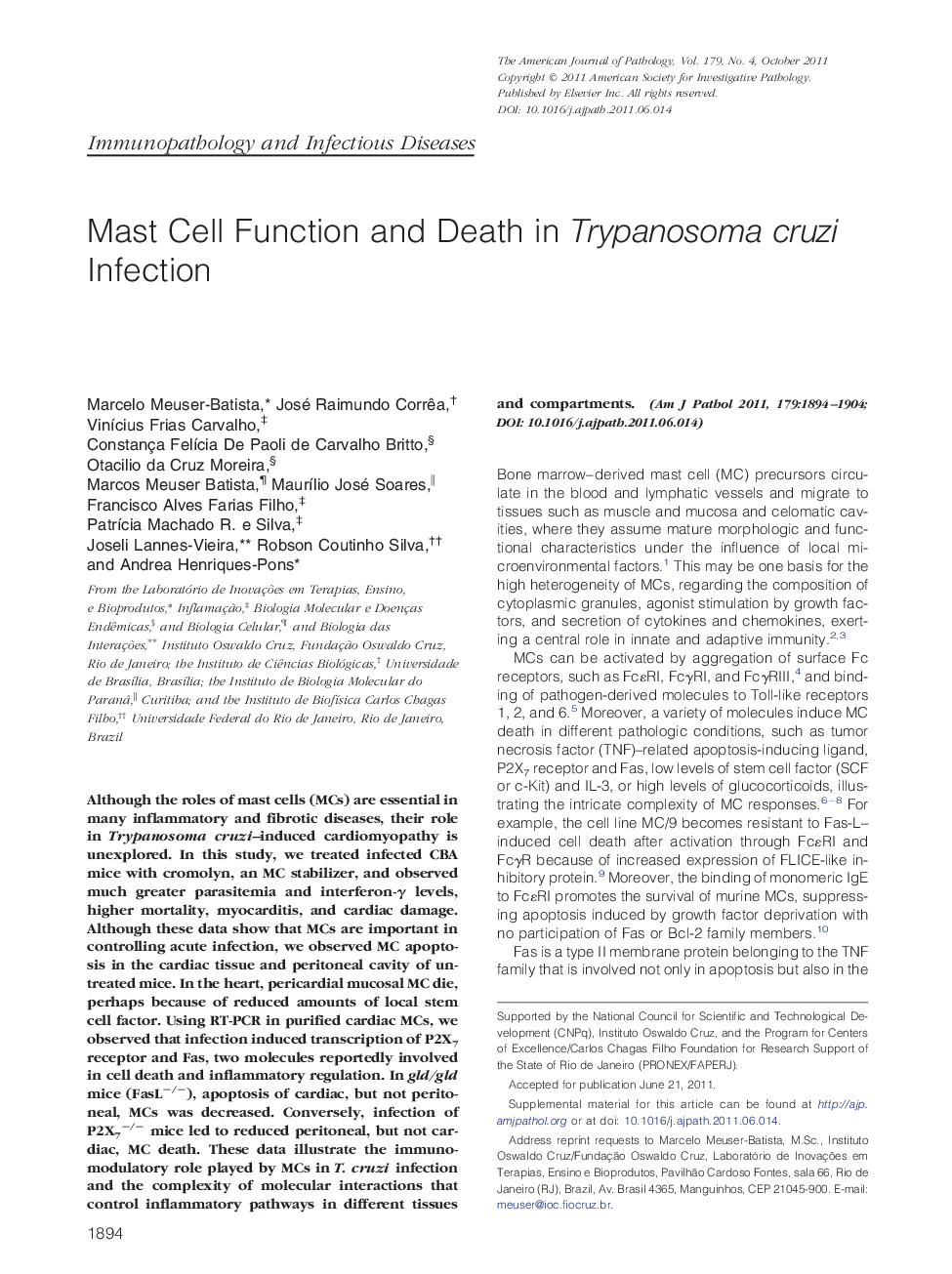| Article ID | Journal | Published Year | Pages | File Type |
|---|---|---|---|---|
| 5939268 | The American Journal of Pathology | 2011 | 11 Pages |
Although the roles of mast cells (MCs) are essential in many inflammatory and fibrotic diseases, their role in Trypanosoma cruzi-induced cardiomyopathy is unexplored. In this study, we treated infected CBA mice with cromolyn, an MC stabilizer, and observed much greater parasitemia and interferon-γ levels, higher mortality, myocarditis, and cardiac damage. Although these data show that MCs are important in controlling acute infection, we observed MC apoptosis in the cardiac tissue and peritoneal cavity of untreated mice. In the heart, pericardial mucosal MC die, perhaps because of reduced amounts of local stem cell factor. Using RT-PCR in purified cardiac MCs, we observed that infection induced transcription of P2X7 receptor and Fas, two molecules reportedly involved in cell death and inflammatory regulation. In gld/gld mice (FasLâ/â), apoptosis of cardiac, but not peritoneal, MCs was decreased. Conversely, infection of P2X7â/â mice led to reduced peritoneal, but not cardiac, MC death. These data illustrate the immunomodulatory role played by MCs in T. cruzi infection and the complexity of molecular interactions that control inflammatory pathways in different tissues and compartments.
